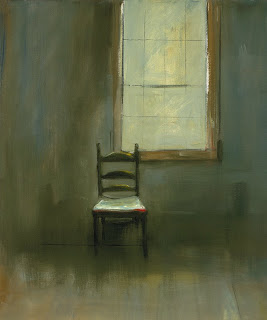It's stream of consciousness time here at Jazz Note. I am digesting a little new music by Noah Preminger, John Surman, Dave King, and Tom Varner. But I am not ready to post on any of that. Instead, I feel like returning to a handful of occasional them and letting them bleed into one another.
First: jazz solos and duets. Solo albums are the jazz version of a dry martini joke. Pour in the gin, whisper "vermouth," over the angled glass and push it across the mahogany. If a jazz man isn't playing the piano or recording multiple tracks, it's hard to lay down anything for the listener to glide on. Only the raw ideas are expressed, leaving the listener to supply his or her own blues and swing. For that reason the solo recording can be as rewarding as it is demanding. You ain't gonna make it rich that way.
Here's an example of Steve Lacy playing Monk's 'Evidence'. Lacy is an avant garde master who was devoted to the soprano sax exclusively and Monk, well, a whole lot. The recording is from a relatively obscure album, the obscurity being no mystery. But I think you will dig it if you give it a chance. You are nowhere but in the horn on this one.
Steve Lacy/Evidence/5 X Monk 5 X Lacy
The duet can be as laconic as the solo even when a piano is included, especially if the piano player is Mal Waldron. Lacy and Waldron recorded a lot of records together and everyone of them is a work of dynamic genius.
Steve Lacy and Mal Waldron/Epistrophy/At the Bimhuis 1982
This is distilled love: Lacy and Waldron for one another and both for Monk. Waldron plays with a percussive style, just as Monk did; but no one would mistake Waldron for Monk here. I love how the piano's insistent beating constantly invites the next note from Lacy's horn.
Another horn/piano duet that probably isn't on your iPod is Chris Potter and Kenny Werner's album. I don't know Werner, but I don't think of avant garde when I think of Chris Potter. This treatment of the same song as above is altogether different: faster and fuller in sound. I like it a lot.
Chris Potter and Kenny Werner/Epistrophy/Concord Duo Series, Vol. 10
All of that gives you a pretty good idea of what a jazz solo and duo can do with a Monk tune. But I can't let this one go without a fuller treatment for contrast. In 1964 Monk recorded a live album at the It Club in San Francisco. I only picked it up recently, but it is a four star document. Charlie Rouse plays tenor, Larry Gales bass, and Ben Riley drums. Wow is this double CD good!
Thelonious Monk/Evidence/Live at the It Club
And here is a little inside information from yours truly. Over the course of several decades I have majored in philosophy and minored in jazz. Both of these courses of study have allowed me to fall in love with other men, with no exchange of bodily fluids. Infection nonetheless occurred. I have been in love with Plato for a long time, and with Thelonious Monk for a good ten years. Listening to the It Club recording meant falling in love all over again.






